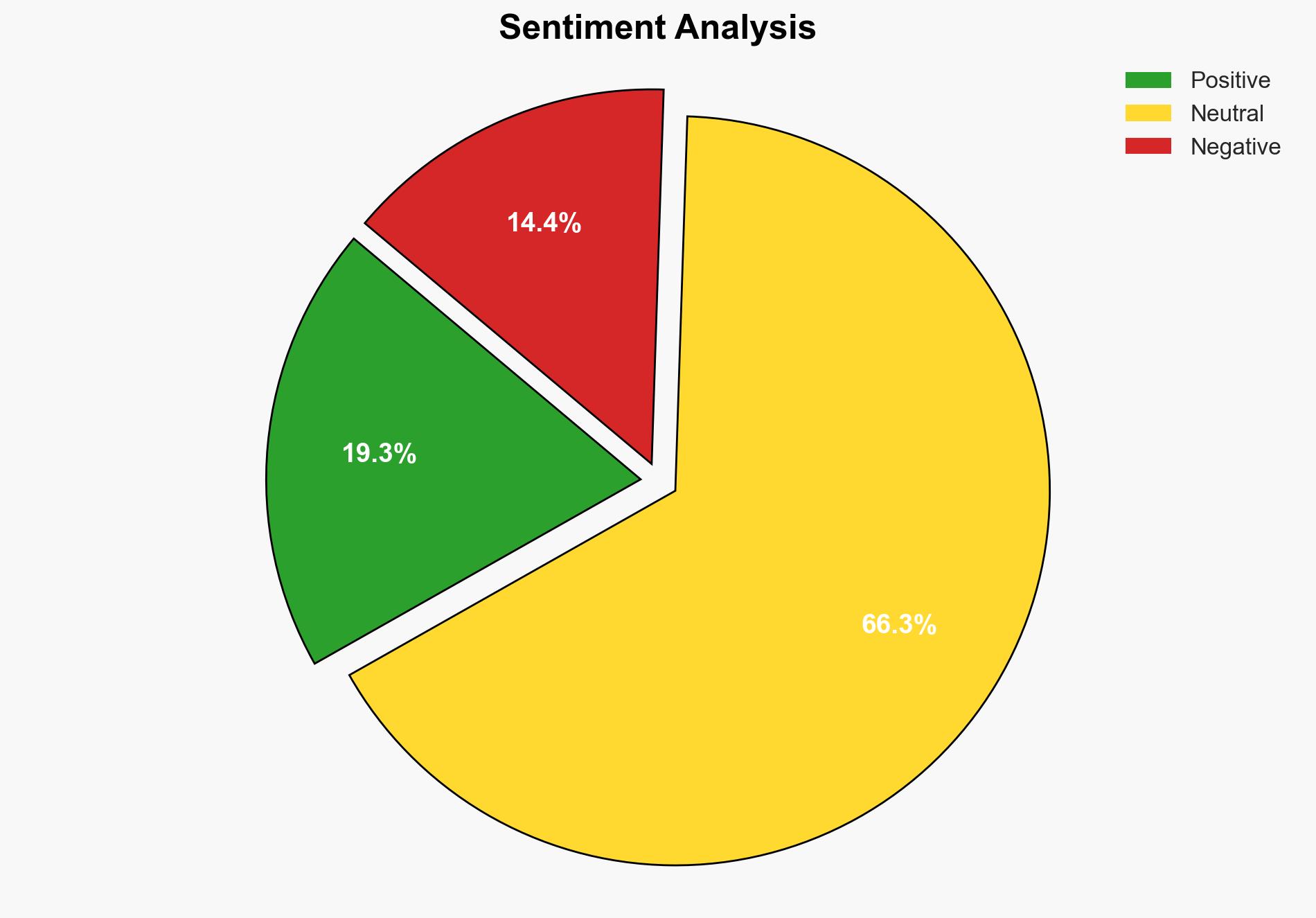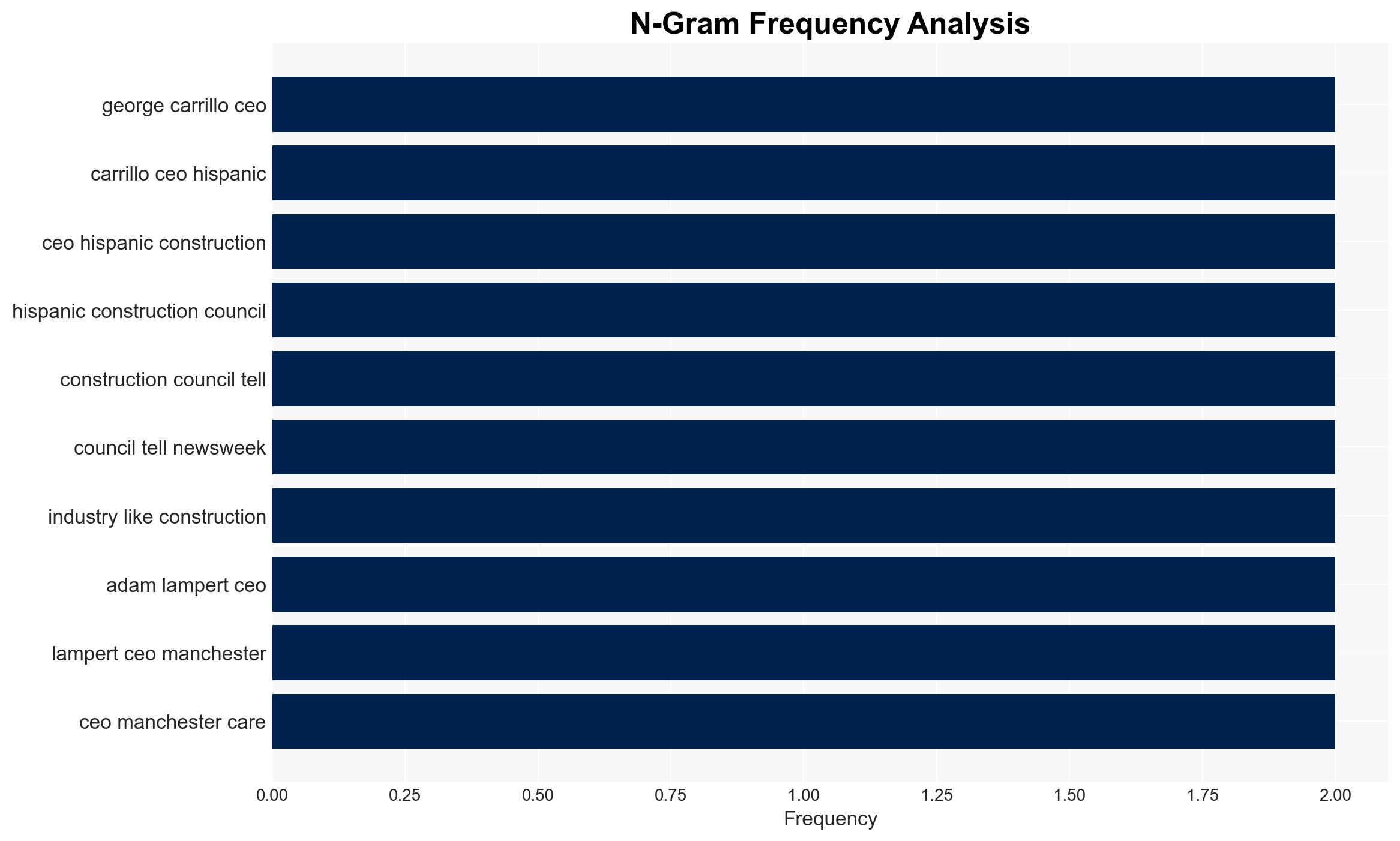Business Leaders Call for More Work Visas Amid Trump’s Crackdown – Newsweek
Published on: 2025-04-10
Intelligence Report: Business Leaders Call for More Work Visas Amid Trump’s Crackdown – Newsweek
1. BLUF (Bottom Line Up Front)
Business leaders are advocating for an increase in work visas to address labor shortages exacerbated by recent immigration policies. The current cap on H-2B visas is insufficient to meet industry demands, particularly in construction. The mass deportation strategy could have significant economic repercussions, including increased costs and disrupted supply chains. Immediate policy adjustments are recommended to mitigate these risks.
2. Detailed Analysis
The following structured analytic techniques have been applied for this analysis:
General Analysis
The construction industry, heavily reliant on immigrant labor, faces a critical shortage of workers due to immigration policy changes. The H-2B visa program, capped at 62,000 visas, is inadequate for the industry’s needs, which require between 700,000 to 900,000 workers. The potential deportation of a significant portion of the immigrant workforce threatens to exacerbate existing labor shortages, delay projects, and increase costs. The economic impact of mass deportations could reach $315 billion, with annual costs up to $88 billion.
3. Implications and Strategic Risks
The strategic risks include:
- Disruption of the construction industry due to labor shortages, leading to project delays and increased costs.
- Potential inflationary pressures as supply chain disruptions lead to higher consumer prices.
- Economic instability due to the high costs associated with mass deportations.
- Negative impacts on regional stability, particularly in states with high immigrant workforce percentages such as California, New Jersey, Texas, Florida, Nevada, and Maryland.
4. Recommendations and Outlook
Recommendations:
- Increase the cap on H-2B visas to align with industry demands, particularly in sectors like construction.
- Develop new visa pathways for immigrant workers to stabilize the workforce and support economic growth.
- Implement regulatory changes to streamline visa processing and reduce bureaucratic delays.
Outlook:
Best-case scenario: Policy adjustments lead to an increase in work visas, stabilizing the labor market and supporting economic growth.
Worst-case scenario: Continued deportations and insufficient visa allocations result in severe labor shortages, economic downturns, and increased costs.
Most likely outcome: Partial policy adjustments mitigate some risks, but labor shortages persist, leading to moderate economic impacts.
5. Key Individuals and Entities
The report mentions significant individuals and organizations:
- George Carrillo
- Adam Lampert




